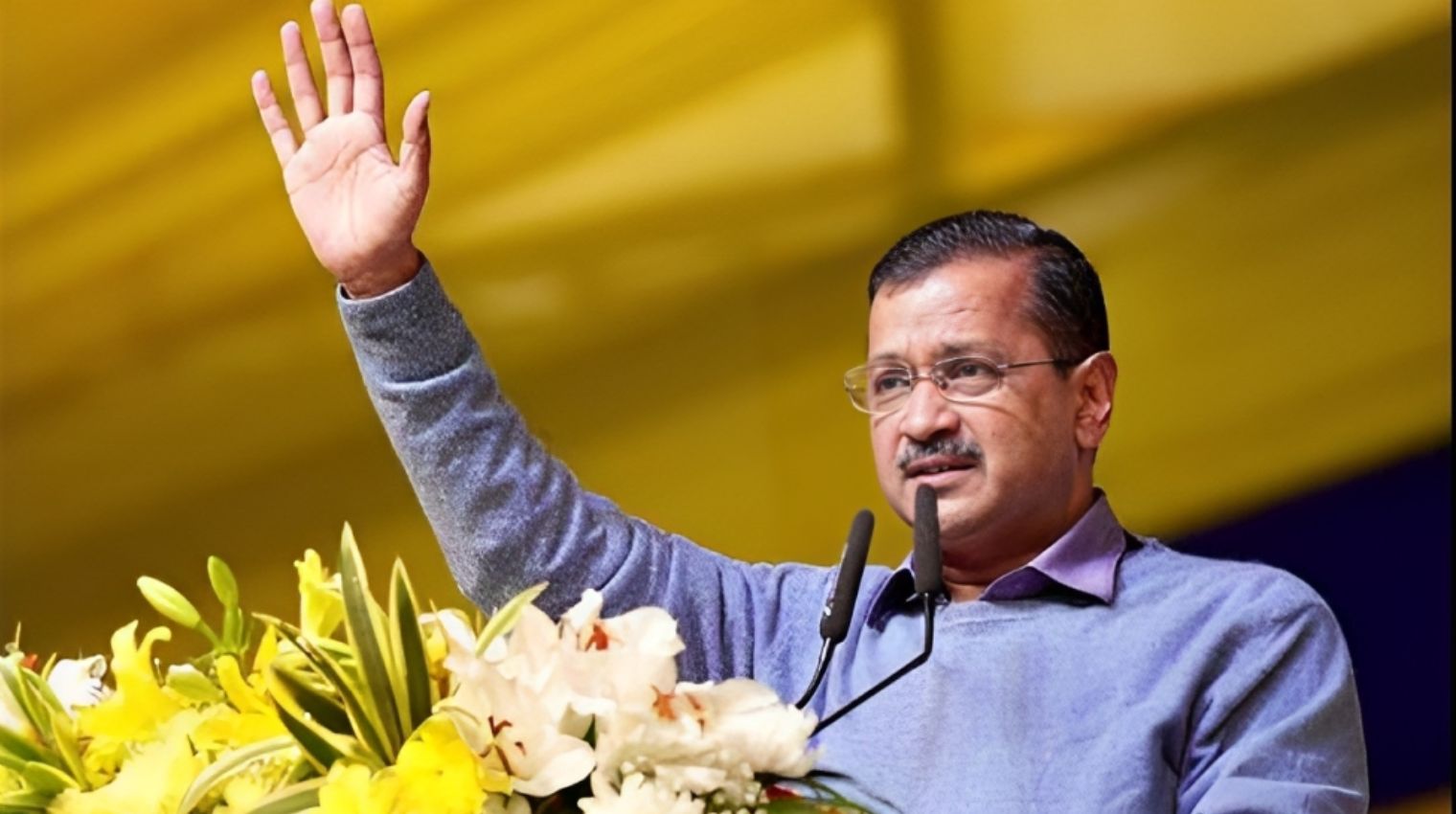Arvind Kejriwal, the chief minister of Delhi, disregarded two prior summonses on November 2 and December 22, dismissing them as “unlawful and driven by political motives.”
Delhi’s chief minister, Arvind Kejriwal, has refused to attend a third round of questioning in the money laundering case related to alleged irregularities in the Delhi excise policy 2021-22. However, he has assured his cooperation in the Enforcement Directorate’s investigation. Kejriwal conveyed his response via WhatsApp, asserting that the summons issued to him were unlawful. The investigators will now consult with senior officials and legal experts to determine the next course of action. The agency aims to interrogate Kejriwal regarding the policy’s formulation, pre-finalization meetings, and allegations of bribery.
A member of the ruling Aam Aadmi Party (AAP) claimed that the motive behind this move is to prevent Kejriwal from participating in the 2024 national election campaign. They questioned the timing of the notice being sent before the elections.
Kejriwal had previously disregarded two summons on November 2 and December 22, labeling them as “illegal and politically motivated.”
In response to the earlier summons, Kejriwal penned a letter to the ED on December 22, identifying himself as a conscientious law-abiding ordinary citizen. He expressed his willingness to comply with any summons issued in accordance with the law, but pointed out that the current summons did not align with legal requirements. Kejriwal highlighted that the ED had specifically requested his personal appearance without providing any reason or necessity, despite the fact that the law allows for authorized representatives to appear on behalf of individuals. This, according to Kejriwal, indicated a motive to harass and embarrass him.
The ED has accused the AAP of receiving kickbacks amounting to ₹100 crore in order to finalize the excise policy, with a portion of these funds allegedly being used in the Goa election campaign. The agency claims that the kickbacks were received from the “South Group” and transferred to former AAP communications in-charge Vijay Nair with the assistance of accused individuals Abhishek Boinpally and Dinesh Arora. The ED maintains that AAP volunteers were paid in cash during the campaign.
The AAP has been soliciting public feedback on whether Kejriwal should resign if he is arrested or if he should continue to govern from jail. The party has accused the Bharatiya Janata Party (BJP) of conspiring to implicate Kejriwal in order to weaken the AAP.
AAP leaders Manish Sisodia and Sanjay Singh are currently in jail in connection with this case, which has seen the arrest of 14 individuals by the ED. The agency has approached a court seeking permission to investigate the AAP as a beneficiary of the “proceeds of crime.”
The AAP has vehemently denied all charges and has labeled the case as a “witch-hunt” and “political vendetta” orchestrated by the Union government.
BJP lawmaker Ramvir Singh Bidhuri has urged Kejriwal to respect the law and cooperate with the investigation. Bidhuri asserts that Kejriwal has consistently portrayed himself and his colleagues as victims of false cases, which he believes is untrue. Despite receiving three notices from the ED, Kejriwal has chosen to ignore them and has refused to participate in the investigation. Bidhuri emphasizes that Kejriwal should actively engage in the investigation of the liquor scam.
In one of its five charge sheets, the Enforcement Directorate (ED) has alleged that the excise policy was conceived by Kejriwal himself. Furthermore, Kejriwal’s involvement has been mentioned in the remand papers, which refer to alleged meetings, commissions for private players, and the entry of political and business figures from the south into Delhi’s liquor business.
The ED’s charge sheet, filed in January last year, states that Kejriwal informed businessman Sameer Mahendru that Nair is under his influence and should be trusted.
According to the agency, C Arvind, who was then the secretary of Sisodia, confirmed in his December 2022 statement that he was informed about the decision to allow a 12% profit margin for wholesale private entities at Kejriwal’s residence in March 2021.
Arvind also informed the ED that there were no discussions regarding the involvement of private players in the wholesale liquor business during the meetings of the group of ministers (GoM), which included Sisodia, Satyendar Jain, and Kailash Gahlot, prior to mid-March 2021.
In mid-March 2021, according to an ED charge sheet, Arvind was summoned to Kejriwal’s residence along with former health minister Satyendar Jain. During the meeting, Sisodia presented Arvind with a draft GoM report suggesting that the wholesale business should be handed over to private entities. Arvind was instructed to prepare the draft GoM report based on this document. He mentioned that this proposal was completely new to him as it had never been discussed in any GoM meetings before.
The objective of the excise policy was to revive the declining liquor business in the city and replace the existing sales-volume-based system with a license fee for traders. It promised to establish more sophisticated stores and enhance the overall buying experience. For the first time in Delhi, the policy introduced discounts and offers on liquor purchases.
The decision by Lieutenant Governor Vinai Kumar Saxena to initiate an investigation into alleged irregularities in the policy led to its cancellation. The AAP has accused Saxena’s predecessor, Anil Baijal, of undermining the policy by making last-minute changes that resulted in lower-than-anticipated revenues.

